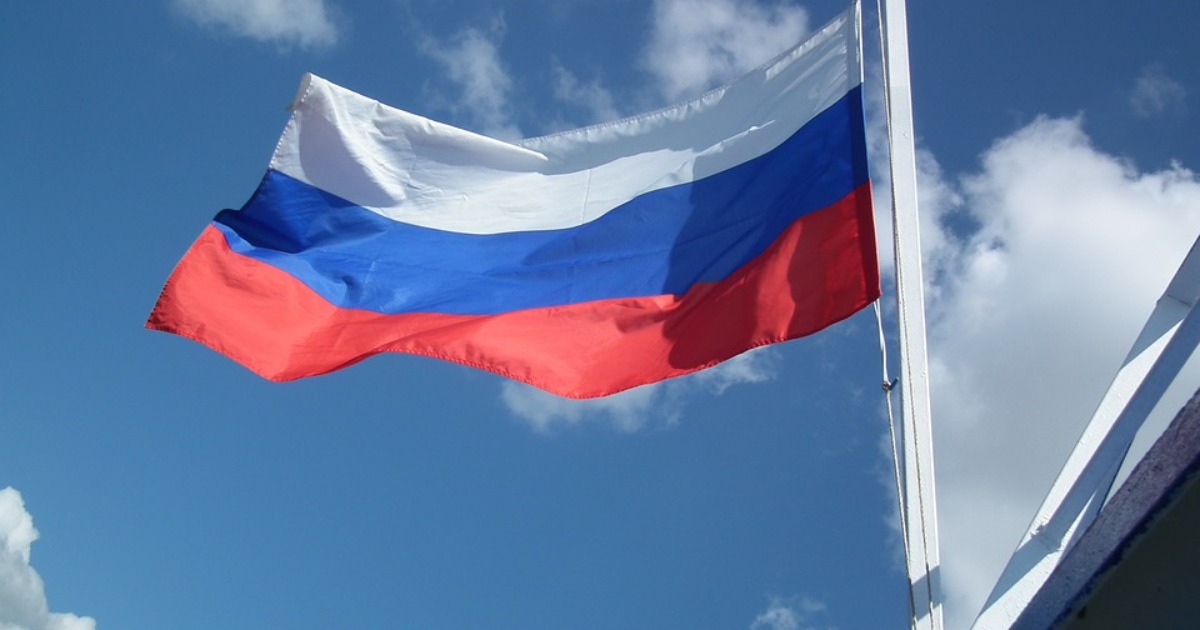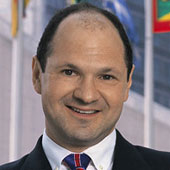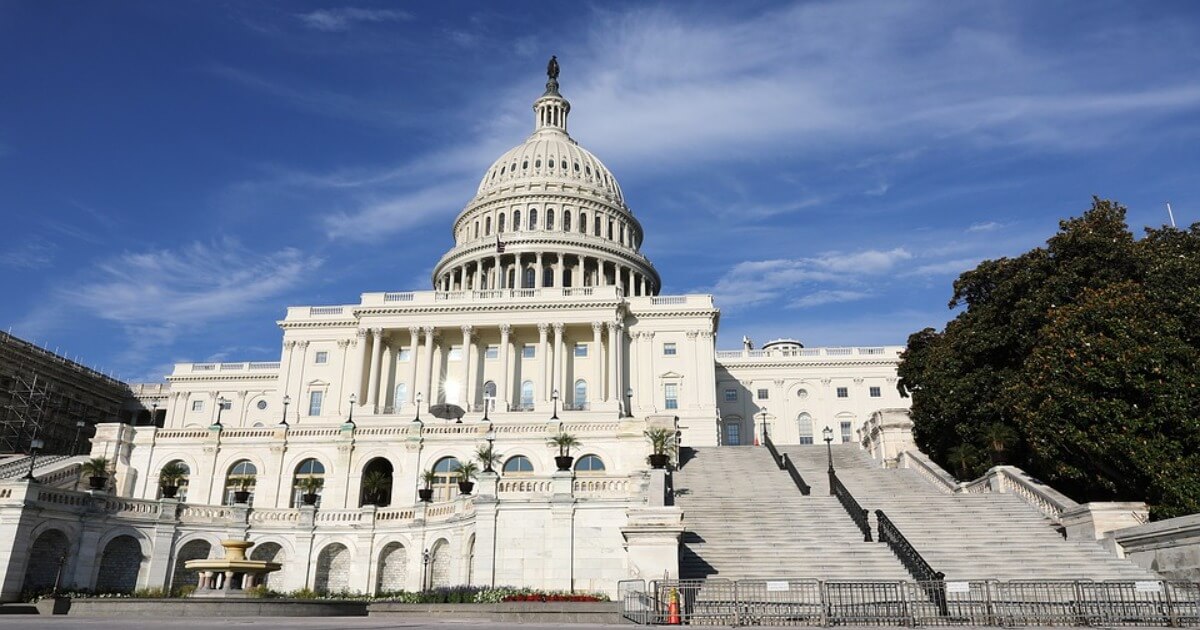Sakharov and Where Russia Went Wrong
After the end of any authoritarian regime, the future development of the country in question hinges on whether or not opposition forces come to power. Russia is a prime example.
December 16, 2023

A Strategic Assessment Memo (SAM) from the Global Ideas Center
You may quote from this text, provided you mention the name of the author and reference it as a new Strategic Assessment Memo (SAM) published by the Global Ideas Center in Berlin on The Globalist.
When Hitler was defeated, the occupying powers naturally removed the Nazis from power and, in 1949, a German opposition figure, Konrad Adenauer, became the Federal Republic’s first Chancellor.
In Czechoslovakia, the Velvet Revolution which overthrew Communist rule brought to power dissident playwright Vaclav Havel. In South Africa, the end of apartheid was marked by the release of Nelson Mandela from prison and his election as President.
China provides an opposite example. After the death of Mao Zedong, the Communist Party did not relinquish control – despite embarking upon a new economic course and introducing a mechanism of power transfer.
In the end, Xi Jinping installed himself as another Mao – a ruler for life, not only greatly tightening political and economic screws, but suppressing China’s full potential as a direct consequence of his actions.
What about Russia?
And then there is Russia. Russia lived under the Romanov dynasty for 300 years, and since the 1917 Bolshevik Revolution continuity has been the name of the game once again.
When Joseph Stalin died, there was no question of opposition coming to power. His bloody repressions had made the emergence of opposition impossible.
Stalin was succeeded by one of his henchmen, Nikita Khrushchev, who condemned Stalin’s personality cult – and promptly began building his own. He was ousted by a palace coup, and his successors established a collective leadership – until Leonid Brezhnev emerged as a new strongman.
A new start?
The collapse of Communism in 1990 seemed like a new start. Russia shed its colonies and abandoned expansionist plans. It declared itself a democracy and expressed a commitment to human rights and openness. Its new constitution promised free elections, imposed term limits on presidents and banned censorship.
However, the man who was elected as the first Russian President was another Communist Party apparatchik. Boris Yeltsin had served as the head of the Party Committee in Sverdlovsk (now Yekaterinburg), an important industrial region in the Urals, and of the Party Committee in Moscow, a key political post in the USSR.
The opposition
And yet, even in the era of the Soviet Union there was a significant opposition movement. True, actual protests were rare – for instance when eight brave women and men came out onto Red Square in August 1968 to protest the Soviet invasion of Czechoslovakia.
But there were important grassroots dissident organizations, such as the Moscow Helsinki Group, which monitored Soviet compliance with the human rights clauses of the 1975 Helsinki Accords.
Dissidents were collecting and disseminating information about political prisoners, human rights violations and police brutality.
Literature that was censored by the government was circulated in typewritten copies and smuggled for publication abroad. Artists organized underground exhibitions.
Why did they fail?
One reason why the dissidents did not take power in post-Communist Russia was the untimely death of Nobel Peace Prize laureate Andrei Sakharov.
A brilliant physicist, Sakharov worked for the atomic bomb project and was credited with the development of the Soviet hydrogen bomb.
Despite being decorated by the government and leading a life of privilege, Sakharov began to criticize the nuclear arms race and ended up becoming the most prominent – and highly respected – Soviet dissident.
He was exiled to the city of Gorky (now Nizhny Novgorod) for his opposition to the Soviet invasion of Afghanistan.
When Mikhail Gorbachev began his liberalization program, he allowed Sakharov to return to Moscow. Sakharov was elected to the Soviet parliament in 1989 – but died in December of that year.
What could have been
Many people believe that when the USSR collapsed two years later he could have become a Russian combination of Havel and Mandela – with an added advantage of possessing the sharp mind of a theoretical scientist.
The Yeltsin government paid lip service to the dissident movement in general – and to Sakharov in particular. A major thoroughfare in Moscow was named after him, his apartment was turned into a museum and a Sakharov Center was opened in the city in order to promote democratic and humanistic ideals which he advocated.
However, the surviving dissidents were shunted aside and forgotten. Many lived in abject poverty, suffering from physical and mental health issues resulting from years in labor camps and punitive mental institutions.
Dissident Yuri Fedorov, a former political prisoner who spent nearly a quarter of a century in Soviet prisons and who was then living in the United States, set up the Gratitude Fund – a charity for needy veterans of the dissident movement in Russia.
From Yeltsin to Putin
Post-Soviet Russia was shaped by Yeltsin. The transfer of power from one group of Communist hacks to another finished up exactly as it was supposed to.
Yeltsin, who was elected to his first term in a free and fair election in 1992, had lost all his popularity four years later, and ran for a second term with an approval rating of just 13%.
The election was rigged to ensure his victory, and in 2000 he passed the presidency to his hand-picked successor, an obscure former KGB Lieutenant Colonel Vladimir Putin. Putin then went on to win the presidential election despite having virtually no name recognition.
Putin: Ruler for life
Is it any surprise then that Putin has torn up that well-meaning Russian constitution, becoming a ruler-for-life and imprisoning, murdering or expelling abroad his rivals and critics?
His Russia is nasty and aggressive, having started the largest war in Europe since the defeat of Hitler, in which as many as 300,000 Russians have died.
Epilogue
True to the Russian despot’s form, the Sakharov Center has been shut down and its staff have fled Russia. The U.S. Andrei Sakharov Foundation has been declared an “Undesirable Foreign Entity” – making it a criminal offense for any Russian citizen to interact with it.
Editor’s note: Alexei Bayer is a member of the Board of the U.S. Andrei Sakharov Foundation.
Takeaways
After the end of any authoritarian regime, the future development of the country in question hinges on whether or not opposition forces come to power. Russia is a prime example.
The Soviet Union had a significant opposition movement. Actual protests were rare, but there were important grassroots dissident organizations – such as the Moscow Helsinki Group.
One reason why the dissidents did not take power in post-Communist Russia was the untimely death of Nobel Peace Prize laureate Andrei Sakharov.
Post-Soviet Russia was shaped by Yeltsin. The transfer of power from one group of Communist hacks to another finished up exactly as it was supposed to.
Is it any surprise that Putin has torn up the Russian constitution, becoming a ruler-for-life and imprisoning, murdering or expelling abroad his rivals and critics?
Putin's Russia is nasty and aggressive, having started the largest war in Europe since the defeat of Hitler, in which as many as 300,000 Russians have died.
Many people believe that when the USSR collapsed Andrei Sakharov could have become a Russian combination of Havel and Mandela – with an added advantage of possessing the sharp mind of a scientist.
A Strategic Assessment Memo (SAM) from the Global Ideas Center
You may quote from this text, provided you mention the name of the author and reference it as a new Strategic Assessment Memo (SAM) published by the Global Ideas Center in Berlin on The Globalist.


